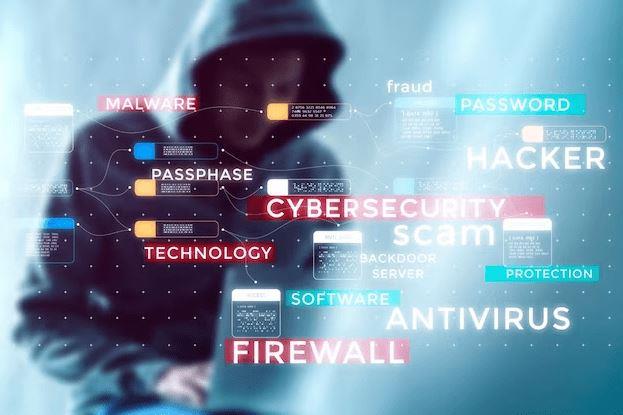Managed IT Services: Your Initial Line of Security in Cyber Security

In the current digital environment, online security has become into a crucial foundation for the effective management and prosperity of organizations. With the ever-evolving barrage of online threats, from complex ransomware incidents to misleading phishing schemes, organizations must focus on defending their sensitive data and infrastructure. The consequences have never been higher; a lone violation can lead to severe monetary setbacks, reputational damage, and legal issues. Organizations regardless of size are understanding that the initial protective measure against these threats is more than merely having an internal IT department but rather a well-rounded plan involving managed IT services.
Managed services offer businesses with targeted knowledge and forward-thinking strategies to tackle the range of security issues they face. By partnering with an IT managed services provider, organizations can strengthen their security posture while gaining economic advantages, better regulatory adherence, and a robust support system for service resilience. Comprehending the role of these services and their value in today's digital security landscape can equip organizations to successfully maneuver through the intricate landscape of online threats, ensuring they are well-equipped to safeguard against future invasions.
Understanding Cyber Security Threats
In the modern online landscape, grasping cybersecurity risks is essential for each business. The quick evolution of technology has increased the attack surface, making organizations more susceptible to cyber threats. Regardless of size, small and large businesses face an variety of potential risks, including data breaches, ransomware, and phishing attacks. Not being able to acknowledge these risks can lead to significant financial loss, damage to brand image, and litigation consequences, underscoring the significance of prioritizing cybersecurity strategies.
The most common cybersecurity threats come in multiple forms, every with its own features and mitigation methods. Continued , for example, locks essential data until a ransom is paid, while phishing scams trick employees into revealing confidential information. Detecting these threats and implementing measures such as user education, regular security assessments, and adopting up-to-date software can greatly reduce the risk of falling victim to such attacks. Knowledge is power, and staying informed about new threats is vital for effective protection.
Moreover, the implications of a cybersecurity breach extend deeper than immediate financial loss. Businesses risk losing client trust and facing oversight, further emphasizing the need for a proactive method to cybersecurity. By evaluating potential vulnerabilities, creating a strong incident response plan, and investing in managed services, organizations can reduce risks effectively. A thorough understanding of these cybersecurity risks equips businesses to make educated decisions and focus on security in their business strategies.
The Importance of IT Managed Services
Managed IT services play a critical role in enhancing cybersecurity for organizations of various sizes. By outsourcing IT management to specialized providers, organizations can take advantage of skills and resources that may not be available in-house. This access to advanced security tools and technologies allows businesses to preventively address potential vulnerabilities and threats. Managed services providers offer a comprehensive approach to cybersecurity, encompassing everything from threat detection and response to compliance management, ensuring that businesses stay ahead of the curve in evolving online threats.
One significant advantage of IT managed services is the ongoing monitoring and support they provide. Managed services providers employ skilled experts who monitor systems 24/7, quickly identifying and responding to issues that could indicate a cyber breach. This preventive monitoring minimizes downtime and mitigates the threat of impact of cyberattacks, enabling businesses to sustain operations smoothly. Furthermore, managed services can help simplify routine security tasks, freeing up internal resources to prioritize growth strategies that drive progress and advancement.
In addition, IT managed services help businesses implement strong cybersecurity policies and best practices tailored to their unique needs. This includes the use of MFA, data encryption, and device security. Managed services providers also provide education for employees on recognizing phishing attempts and other common threats, which significantly enhances the overall security posture of the organization. By embedding managed services into their cybersecurity strategies, businesses not only fortify their defenses but also promote a security-aware culture that is crucial in today’s online world.
Best Practices for Business Security
Adopting robust security measures is essential for securing your business from cyber threats. Frequent employee training on cybersecurity awareness is one of the top practices, helping staff recognize phishing scams and potentially harmful activities. Frequent workshops can equip employees with knowledge about the newest threats and how to address them, developing a culture of security within the organization. Promoting a proactive approach to security among all team members can significantly reduce the risk of effective attacks.
An additional key practice is the adoption of multi-factor authentication for accessing critical systems and data. This additional layer of security makes it much more challenging for unauthorized users to gain access, even if they are able to acquire passwords. It is essential that businesses implement MFA across their platforms to enhance security, specifically for remote work setups or when accessing cloud services. Consistent monitoring and updating of access controls should also be a consideration to ensure that only authorized personnel have access to essential information.
In addition, maintaining robust data backup and disaster recovery plans is crucial. This practice ensures that, in the event of a data breach or data loss, businesses can quickly recover operations with little downtime. Consistently testing these backup systems and disaster recovery protocols will ensure they operate effectively when needed. By prioritizing these strategies, businesses can protect their data, enhance their resilience against cyber threats, and ensure they are well-prepared to act to incidents swiftly and efficiently.

